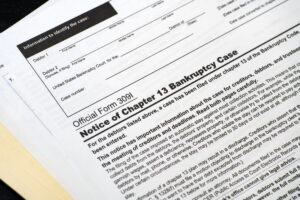
My job is to help you get rid of as much debt as possible, in the shortest amount of time possible, and to make sure you keep as much of your assets as possible.
That means that, even if you own a home, I am going to advise you to file chapter 7 bankruptcy as long as it is safe for you to do so.
Can you file chapter 7 bankruptcy and still keep your home?
It depends.
When a homeowner comes in for a consult, oftentimes the first thing they say is that they want to file chapter 13 bankruptcy. “Great!” I say. And then ask, “why?” “Because I want to keep my house,” is the inevitable answer.
And that’s when I start digging, asking more questions to get a better understanding of their entire financial situation.
Here’s what I need to know: how much do you owe on the house and what the fair market value is. The first thing I’m going to do is go online and pull up Zillow, Redfin, or some other site that lists a fair market value based on sales of other homes in the neighborhood. I understand that these websites don’t necessarily reflect the correct market value, but they’re a good starting point. If you want something more reflective of home values in your neighborhood, you’ll want to get a comparative market analysis (CMA) from a realtor or an appraisal.
In Colorado, $75,000 in home equity is protected if you file bankruptcy. That amount goes up to $105,000 if you are over the age of 60 or disabled (or have a family member living in your home who is over 60 or disabled).
So, if your home’s fair market value is more than, say, $100,000 than what you owe your mortgage lender, you have $25,000 in unprotected equity. The bankruptcy wants that $25,000 to distribute to your creditors.
Let’s say you have $70,000 in home equity. It’s my practice to advise a client to consider chapter 13 bankruptcy if they have more than $65,000 in home equity. I get nervous when a home’s value is that close to the equity limit. A chapter 7 trustee can simply do nothing and wait for the equity to rise until it’s past that $75,000 amount. I’ve heard horror stories of trustees lying in wait for two years to spring upon the debtor to collect unprotected equity. This is my nightmare.
Of course, if someone has fallen behind on their mortgage payments, we’re also going to talk about chapter 13 instead of chapter 7. Chapter 7 doesn’t have a mechanism that allows a debtor to get caught up on their mortgage. Chapter 13 does.
The bottom line is that there are too many variables that go into determining which bankruptcy chapter you should file if you want to keep your home. My job is to help my clients eliminate as much debt as possible while keeping their assets intact in a way that gets them on their path to financial recovery as soon as possible. Usually, that means filing chapter 7. Sometimes, it means chapter 13.
The only way I can help you decide which chapter is best for you is if you come in to talk to me about your financial situation. My consultations are free.
The easiest way to schedule an appointment is by clicking here.
I hope to talk to you soon!


